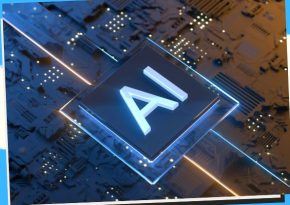
The Ethical Tug-of-War: Bias vs. Fairness in Artificial Intelligence, Who Wins? 🤝🤖
Navigate the challenging terrain of artificial intelligence (AI) ethics as we delve into bias and fairness considerations.
Navigating the Labyrinth of Bias and Fairness in AI: Ethical Considerations 🤖🤝📚
In the era of artificial intelligence (AI), machines are increasingly influencing our decisions, from job applications to criminal sentencing. While AI systems offer immense promise, they also harbor the potential for bias and discrimination. The ethical implications of AI bias and fairness are among the most pressing concerns of our time. In this article, we embark on a journey through the complex landscape of bias in AI, exploring the challenges, ethical considerations, and potential solutions that shape the path forward. 🌐🔍
The Promise and Peril of AI 🌟🤖
Before we delve into the ethical dimensions, it’s crucial to understand the transformative power of AI and the risks it entails.
1. The AI Revolution 🚀🌐
AI has revolutionized industries, from healthcare to finance, offering unparalleled data analysis, pattern recognition, and decision-making capabilities.
2. Hidden Biases 🕵️♂️🧠
However, AI systems fueled by data can inherit the biases present in that data, leading to unfair and discriminatory outcomes.
3. Ethical Imperative 🌐🤝
Addressing bias in AI isn’t just a matter of technical refinement; it’s an ethical imperative to ensure fairness, equity, and justice.
The Complex Web of AI Bias 🕸️🔍
AI bias is a multifaceted challenge that manifests in various forms. Here are some critical dimensions:
1. Data Bias 📊🔄
Data used to train AI models may reflect historical biases, perpetuating discrimination against certain groups or reinforcing stereotypes.
2. Algorithmic Bias 🧮🔄
Algorithms themselves can be biased, either through how they process data or the assumptions embedded in their design.
3. Societal Bias 👥🔄
AI systems can unintentionally amplify societal biases by favoring certain groups over others, impacting decisions in employment, lending, and criminal justice.
4. Explainability and Transparency 📚🔍
The opacity of AI decision-making can obscure the reasons behind outcomes, making it challenging to identify and rectify bias.
The Ethical Quandaries 🤔🔍
AI bias raises profound ethical questions that demand thoughtful consideration:
1. Fairness and Equity ⚖️🤝
How do we define fairness in AI, and what measures can ensure equitable outcomes for all individuals?
2. Accountability 📜🔒
Who is accountable when AI systems produce biased or discriminatory results—developers, users, or the AI itself?
3. Consent and Control 🤷♂️🤖
Should individuals have control over the AI-driven decisions that affect their lives, and how can they give informed consent?
4. Discrimination and Vulnerable Groups 🎯👥
How can AI bias be prevented from disproportionately affecting vulnerable and marginalized communities?
5. Bias Trade-Offs ⚖️🔄
Balancing bias reduction with maintaining useful AI performance is a complex trade-off that requires ethical judgment.
Mitigating Bias and Ensuring Fairness 🌐🛡️
Addressing AI bias is a multifaceted endeavor involving technology, ethics, and policy. Here are some strategies:
1. Diverse and Representative Data 🌍📊
Ensuring that training data is diverse and representative of all demographic groups is a foundational step in reducing bias.
2. Bias Audits and Assessments 🕵️♀️🔍
Regular bias audits and AI system assessments can help identify and rectify biases.
3. Explainable AI (XAI) 📚🤖
Developing AI systems that are more transparent and explainable can help users understand the reasons behind AI-driven decisions.
4. Ethical AI Guidelines 📜🤖
Establishing ethical guidelines and principles for AI development and deployment can promote responsible AI practices.
5. Regulatory Frameworks 📊📜
Governments and regulatory bodies are exploring frameworks to ensure AI systems adhere to ethical standards and are held accountable for biases.
The Role of Bias Mitigation Technologies 🛠️🤖
Technology itself can play a significant role in mitigating bias in AI systems. Some approaches include:
1. Fairness Metrics 📊📐
Developing fairness metrics that quantify and assess bias in AI models.
2. Bias Correction Algorithms 🔄🔧
Designing algorithms that can identify and correct bias in AI-generated outputs.
3. Anti-Bias AI Tools 🧰🔨
Creating tools that help developers identify and rectify bias during the development phase.
4. Post Hoc Analysis 🕵️♂️🔍
Conducting post hoc analysis to uncover biases that may have emerged during AI deployment.
The Ongoing Ethical Dialogue 🗣️🌐
The ethical considerations surrounding AI bias are ongoing, and the dialogue continues to evolve. Key points of discussion include:
1. Cultural and Societal Context 🌍🧠
The impact of AI bias can vary across cultures and societies, highlighting the need for context-aware solutions.
2. Bias as a Moving Target 🎯🔄
Bias in AI is not static; it can evolve with changes in data and society, necessitating ongoing vigilance.
3. Bias vs. Error 📉🔄
Distinguishing between intentional bias and unintentional errors is essential for ethical assessment.
4. Inclusivity in Development 👥🏗️
Ensuring that diverse teams are involved in AI development can reduce the likelihood of bias.
Conclusion: Navigating the Ethical Maze 🚶♀️🌟
The journey through the labyrinth of bias and fairness in AI is complex and ongoing. As we develop and deploy AI systems, we must remain steadfast in our commitment to ethical considerations. Balancing the promise of AI with the perils of bias is a collective responsibility that requires continuous vigilance, innovation, and a commitment to fairness and equity. In doing so, we can steer AI toward a future that empowers rather than discriminates. 🤖🤝🌐
Related Queries
🤖 Decoding the Dilemma: Bias and Fairness in AI, Unraveling Ethical Complexities 💔
⚖️ AI’s Moral Compass: Navigating Thorny Path of Bias and Fairness 🌐
🤝 The Ethical Tug-of-War: Bias vs. Fairness in AI, Who Wins? 🤖
⚖️ Striking a Balance: Ethical Considerations in AI’s Battle Against Bias and Unfairness 🤖
💙 AI’s Heart of Ethics: Understanding Challenges of Bias and Fairness 🤖
🦸♂️ Guardians of Fairness: Unmasking Complexities of Bias in AI Ethics 🤖
🌍 Charting the Ethical Landscape: Bias and Fairness in AI’s Brave New World 🧭
🤹♂️ The Tightrope of Ethics: Navigating Tricky Terrain of AI, Bias, and Fairness 🤖
⚖️ AI’s Moral Dilemma: Balancing Bias and Fairness in Age of Automation 🤖
🔍 Transparency and Accountability: Ethical Imperatives in Addressing Bias and Fairness in AI 🤖
Save/Share this story with QR CODE
Disclaimer
This article is for informational purposes only and does not constitute endorsement of any specific technologies or methodologies and financial advice or endorsement of any specific products or services.
📩 Need to get in touch?
Feel free to Email Us for comments, suggestions, reviews, or anything else.
We appreciate your reading. 😊Simple Ways To Say Thanks & Support Us:
1.) ❤️GIVE A TIP. Send a small donation thru Paypal😊❤️
Your DONATION will be used to fund and maintain NEXTGENDAY.com
Subscribers in the Philippines can make donations to mobile number 0917 906 3081, thru GCash.
3.) 🛒 BUY or SIGN UP to our AFFILIATE PARTNERS.
4.) 👍 Give this news article a THUMBS UP, and Leave a Comment (at Least Five Words).
AFFILIATE PARTNERS

World Class Nutritional Supplements - Buy Highest Quality Products, Purest Most Healthy Ingredients, Direct to your Door! Up to 90% OFF.
Join LiveGood Today - A company created to satisfy the world's most demanding leaders and entrepreneurs, with the best compensation plan today.



 Business Technology, Finance Technology & Information Technology
Business Technology, Finance Technology & Information Technology





